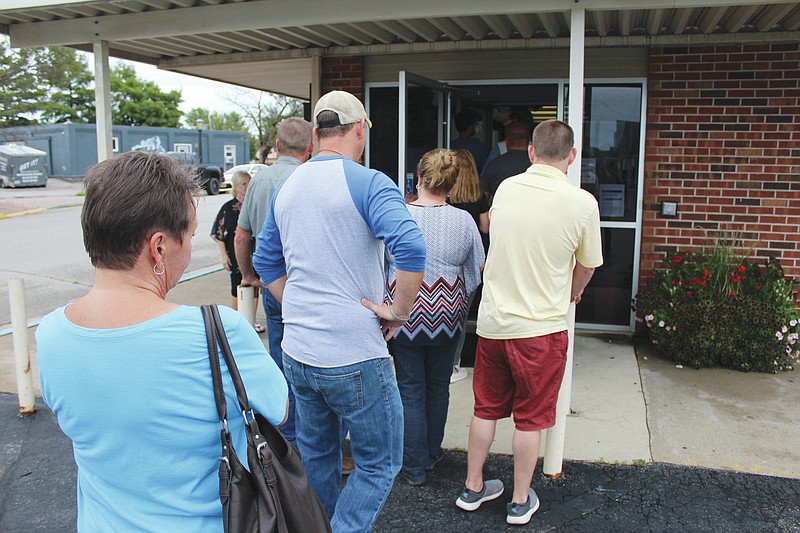The Moniteau County Health Board decided to allow the legal process currently taking place to put restrictions on CAFO ordinances to "run its course" during a Monday special meeting.
Senate Bill 391 - sponsored by state Sen. Mike Bernskoetter, R-Jefferson City, and signed into law by Gov. Mike Parson in May - would prohibit county commissions and county health departments from passing regulations stricter than any state regulations for concentrated animal feeding operations, or CAFOs, which are industrial-sized livestock operations.
Last week, Cole County Presiding Judge Pat Joyce issued a temporary restraining order that will keep SB 391 from going into effect past today. A hearing on the case is scheduled Sept. 16.
Health Board Chairman James Cantor told the nearly packed California Nutrition Center of their consideration concerning the regulation of 2019-A.
"Over the last 15 months, a study group has been looking at the issue of air and water quality of our county," Cantor said. "Last month, recommendations of the group were adopted by the board."
The board has received, to date, 178 requests for action on a health ordinance, while eight letters of opposition to this action were accounted for, Cantor said.
"Therefore, the board felt it prudent to look into a regulation since legal action has occurred in the last week," he said. "The board felt there were three options we could take at this time. The first is to take no action. Second is to allow the legal process that is currently in action to run its course and then make a more educated decision at that time. The third is to allow any Moniteau County citizen to have the opportunity to oppose the 2019-A action.
"Over the last few days, there have been all sorts of rumors, pro and con, on what the action has been. Therefore, we felt it prudent to allow everyone to have a look at exactly what is proposed," Cantor said.
Health Board member Diane Wiecken made a motion to allow the legal process currently in action to run its course. Fellow board member Carol Jungmeyer seconded the action.
Discontent was audible throughout the room following the less than five-minute meeting. However, Cantor said the board's hands were tied.
"We don't want to take any action until we know what the final outcome will be," he said. "Anything we do or say tonight may be nullified."
Cantor said the board will continue to assist farmers with testing well water sources, watersheds and air quality.
Gary Reichel, local farmer and agriculture teacher in Eldon, said there is "still a lot of concern" around the impending decisions that could be made.
"I think there's still a lot of concern, especially with what happened with Cooper County," Reichel said. "They gave their people the bare minimum of the Sunshine Law to take action. Now, as far as we go, I still think it's incredible that the Health Board went 13 months of not even letting the community know they were looking at this. It's going to take some time to rebuild after that dissention."
Coming from a business perspective, Mike Kelley, president of Moniteau County Regional Economic Development, said in a letter to the board the passage of a regulation could possibly have a "negative impact on some of our larger employers here in Moniteau County."
"Even though I'm sure it's not the intention of the Moniteau County Health Board, I really think we should think about what kind of business climate the passage of this might make," Kelley said. "Additional restrictions on companies that have been good corporate citizens for a long time does not bode well when the tough decisions are made.
"Under these regulations, someone with an ax to grind against a company and/or farm could file complaint after complaint against some of our companies and/or farms," he said. "All it takes is for one of them to stick to cause financial penalties for the companies and/or farms that might cause them to have shut down or relocate to a more business-friendly part of the United States."

